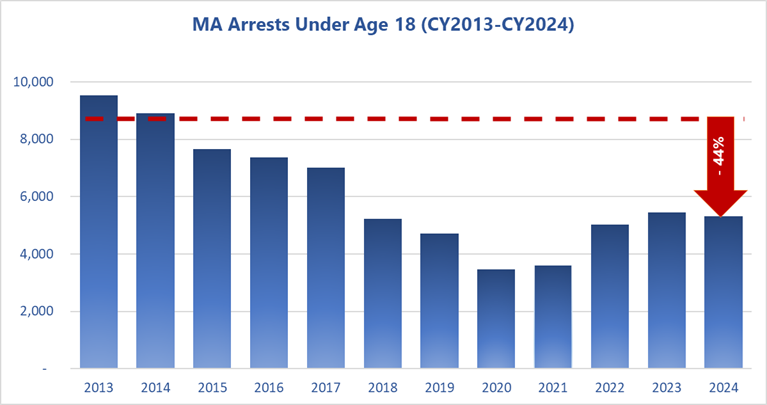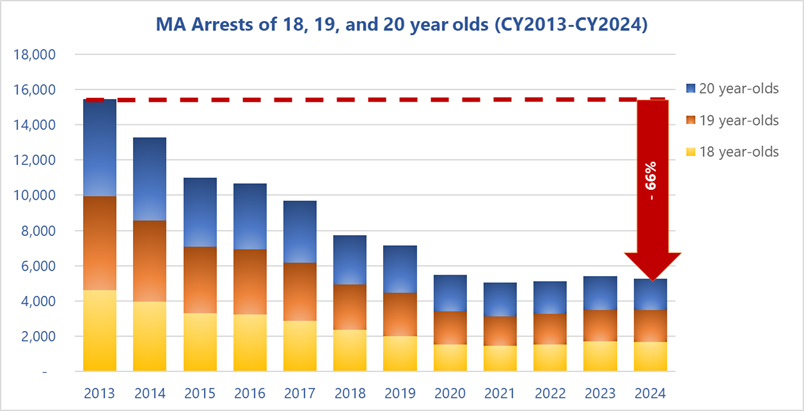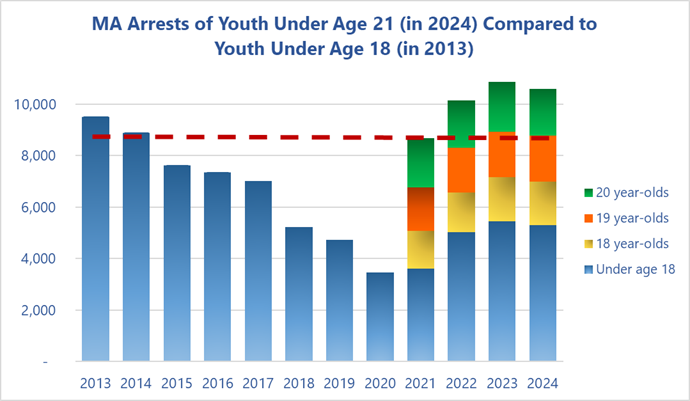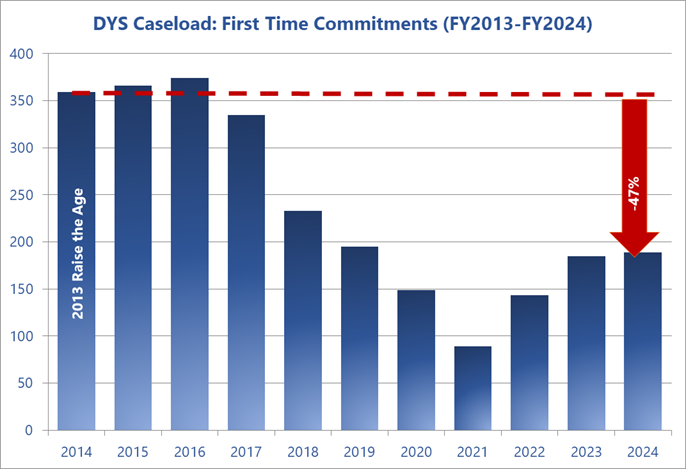Can the juvenile justice system handle more cases?
Yes! The juvenile system - both the Juvenile Court’s and the Department of Youth Services’ caseload have been consistently declining, even with the inclusion of 17-year-olds in September 2013 and passage of the 2018 Criminal Justice Reform Act which heavily invested in the prevention of young people’s legal system involvement. Not only can the juvenile system absorb this new cohort of youth, the system also has the expertise, policy and programmatic infrastructure to effectively intervene with these older adolescents. The legislation gradually increases the age of juvenile jurisdiction over five years to ensure the system can fully absorb 18-year-olds, then 19-year-olds, followed by 20 -year-olds over that five-year implementation period.
Arrests
There are fewer youth under age 21 getting arrested and coming to court. Since raising the age in September of 2013, Massachusetts has seen a 53% reduction in juvenile arrests, and a 73% drop in the arrest rates of 18- to 20-year-olds.
Sources: Massachusetts Executive Office of Public Safety and Security, Crime Statistics (Full Statewide Reporting: SRS Arrestees under 18 and SRS Arrestees 18 and over)
Court Involvement
The Juvenile Court’s caseloads, for all case types, have declined steadily over the last decade. Since raising the age in 2013:
Juvenile Court caseload for ALL case types (child welfare, Child Requiring Assistance, adoption, delinquency, etc.) has declined by 23%.
Data Source: Massachusetts Trial Court, Juvenile Court Department, Total Court Filings By Department
Juvenile Court caseload for Delinquency and Youthful Offender cases have declined by 47%.
Data Source: Massachusetts Executive Office of the Trial Court communications, Nov 2019 and Massachusetts Trial Court, Department of Research and Planning arraignment dashboard
Department of Youth Services
DYS’ caseload has steadily declined, even with the inclusion of 17-year-olds. Since the 2013 Raise the Age law:
Detention admissions dropped by 59%.
DYS first time commitments declined by 47%.
Data Source: Massachusetts Department of Youth Services annual reports and Juvenile Justice Policy and Data Board data dashboard








